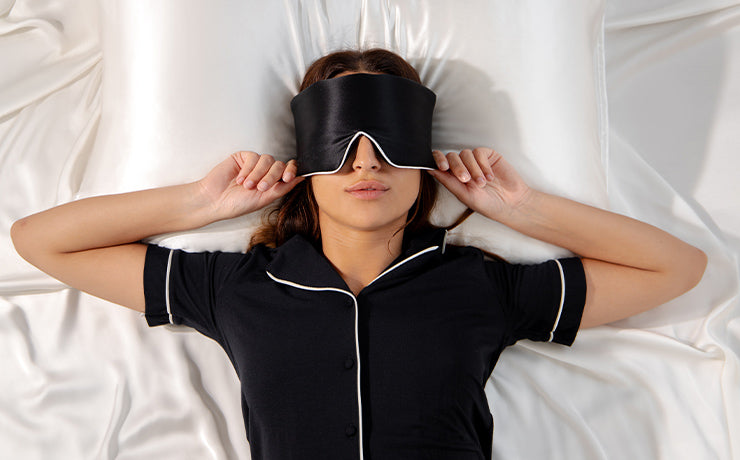How to *actually* hack your sleep
If you haven't been completely out of the loop, you're likely aware (or have felt firsthand) the crucial role sleep plays in upholding your physical, emotional, and mental well-being. Ever had a night where you didn't overindulge in drinks but stayed up too late and woke up feeling absolutely wretched? That's the power of sleep deprivation at work.
Sleep isn't just downtime; it's a vital period for the body to heal, rejuvenate, and perform essential physiological functions that only take place during slumber [1]. We understand life happens – between social events (thinking back to the pre-pandemic days) and pressing work deadlines, missing a few hours here and there seems unavoidable. However, consistently skimping on sleep opens the door to severe health issues, such as obesity, cardiovascular diseases, and diabetes, not to mention a reduced lifespan [2]!
Here’s a comprehensive guide to mastering the art of quality sleep, ensuring you wake up feeling revitalized every day.
Get ‘Circadian Clock’ Watching.
Let's start with the basics. Each of us possesses an inherent mechanism that syncs up with the 24-hour cycle of sunlight and darkness. Familiar with the term 'body clock'? That's precisely what we're talking about. A bit of science for you – it's technically known as the 'suprachiasmatic nucleus', positioned right at the brain's forefront, adjacent to the Hypothalamus. Why does this matter? Grasping your body's natural sleep rhythms is key to unlocking superior sleep quality. The guidelines are straightforward: steer clear of electronics before bedtime, refrain from afternoon naps, and monitor your caffeine consumption. Unfortunately, these habits can disrupt your circadian rhythm's efficiency. And let's be clear: indulging in a double espresso at 5pm is far from conducive to a good night's sleep…
Optimise Your Sleep Stages.
Imagine you've perfected your bedtime routine but still find yourself feeling sluggish upon waking. Are you familiar with the mechanics of your sleep? 'Sleep architecture' forms the foundation of our sleep, comprising four unique stages [4]. It generally takes 90 to 120 minutes to complete a full cycle of these stages, after which the cycle starts anew. These stages include three phases of 'non-rapid eye movement' (NREM) sleep and one phase of 'rapid eye movement' (REM) sleep. Understanding and optimizing these stages can mean the difference between waking up refreshed or feeling as though you haven't slept at all once the alarm goes off shudder.
Transition Stage: This initial phase lasts just a few minutes as your heart rate, breathing, and brain activity begin to decrease, signaling your body it's time to rest. For most people (excluding those with insomnia*), transitioning into sleep comes fairly easily.
Light-Sleep Phase: Welcome to the basics of light sleep. It might come as a surprise, but this phase occupies the most significant portion of our sleeping hours. Without adequate 'deep sleep', it's possible for light sleep to dominate our night, leaving us feeling somewhat unrefreshed upon waking.
Deep Sleep Phase: The action kicks in about 45 minutes after dozing off. This stage is your sleep's powerhouse, accounting for about 25% of the entire sleep cycle and representing the most profound depth of sleep. It's crucial for physical repair and mental restoration. Ideally, our sleep pattern aims to maximize this 'deep' sleep, especially during the initial cycles, which tend to last about 25 minutes each. Regrettably, as the night progresses, the duration available for deep sleep in later cycles tends to diminish.
Dream Sleep Phase: Roughly 90 minutes into your slumber, you enter the dream phase, marked by rapid eye movement (REM) and increasing brain activity. For those who frequently remember their dreams, this is the prime time for dream occurrence.
The Bottom-line?
Grasping the significance of sleep cycles highlights the need to ensure you're getting enough of them each night. The key to unlocking restful sleep is surprisingly straightforward: allocate ample time for sleep to ensure you benefit from the restorative properties of Stage 3 sleep and stick to a consistent sleeping schedule, weekends included. Aim for a solid 8 hours nightly and prioritize an early bedtime.
Here's to peaceful nights and rejuvenating sleep!
[1] Source: ‘What Happens During Sleep’, Sleep.org 20/11/2020
[2] Source: ‘Why Lack Of Sleep Is Bad For Your Health’, NHS UK, 30/05/2018
[3] Source: ‘Circadian Rhythms and Circadian Clock’, NIOSH, 01/04/2020
[4] Source: ‘Sleep Disorders and Sleep Deprivation’, Nation Institutes of Health, 2006
*in which case please consult your doctor






